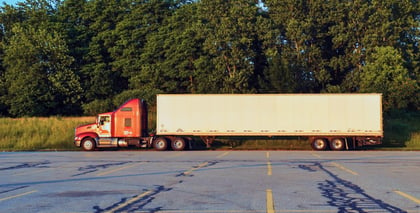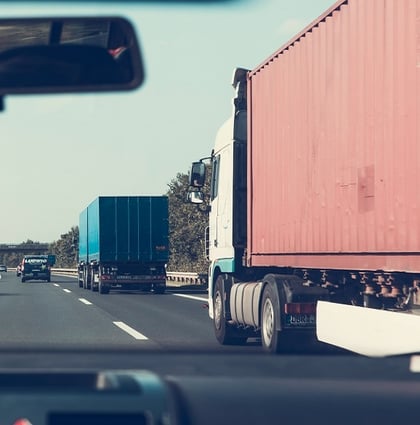MENU

- About
- Journal
- Spinal Cord Injury
- Brain Injury
- Treatment
- Legal Options
- Resources
- Local Resources
- Community
- Recognition

Accidents involving commercial vehicles such as semi-trucks can be especially severe. Commercial vehicle crashes involving large-class automobiles such as semi-trucks and buses can cause horrific damage to the smaller vehicles they collide with.
When damages are catastrophic it is important to have an expert on your side looking out for your family. This is why hiring a truck accident attorney after a crash provides peace of mind.

An object in motion tends to stay in motion, unless acted upon by an outside force. The more mass an object has, the harder it is to stop. Big vehicles, such as semi-trucks with fully-loaded trailers, buses, and garbage trucks, tend to have a lot of mass, so they don’t stop easily. According to data from the Utah Department of Transportation, “a fully loaded tractor-trailer weighing 80,000 pounds traveling under ideal conditions at a speed of 65 miles per hour will take 525 feet to stop.” Moving at speed, a large commercial-class vehicle can overrun or smash aside smaller passenger cars.
Large commercial trucks with trailers that stop or slow suddenly run the risk of the trailer moving side-to-side out of control and folding in on itself, or “jackknifing.” In Florida truck accidents, a jackknifing trailer can become a deadly projectile weighing several tons and moving at high speed.
Commercial truck accidents involving semis can bring a wide variety of additional threats to the crash site, depending on what the truck is carrying. For example, a fuel transportation rig can spill gasoline onto the road, flatbeds with concrete preforms or lumber logs can spill heavy objects onto the tops of other vehicles, and even enclosed trailers can break and send their contents out as shrapnel into other vehicles.


Reach out to a Florida-based personal injury lawyer with years of experience in the field today:
Spinal cord injuries are traumatic for patients and their families. They cause disruptive changes to every aspect of your life and there is a lot of new information to navigate and understand. Our experts have collected everything in one place to help you learn more about your injury, locate doctors and treatment centers, find financial support, and get assistance navigating your next move.
Sponsored by Tampa medical malpractice attorneys Swope, Rodante P.A. a Florida law firm located at 1234 E 5th Ave, Tampa, FL 33605.
The information provided by SpinalCord.com is not a substitute for professional medical advice, diagnosis, or treatment, see Disclaimer Policy.